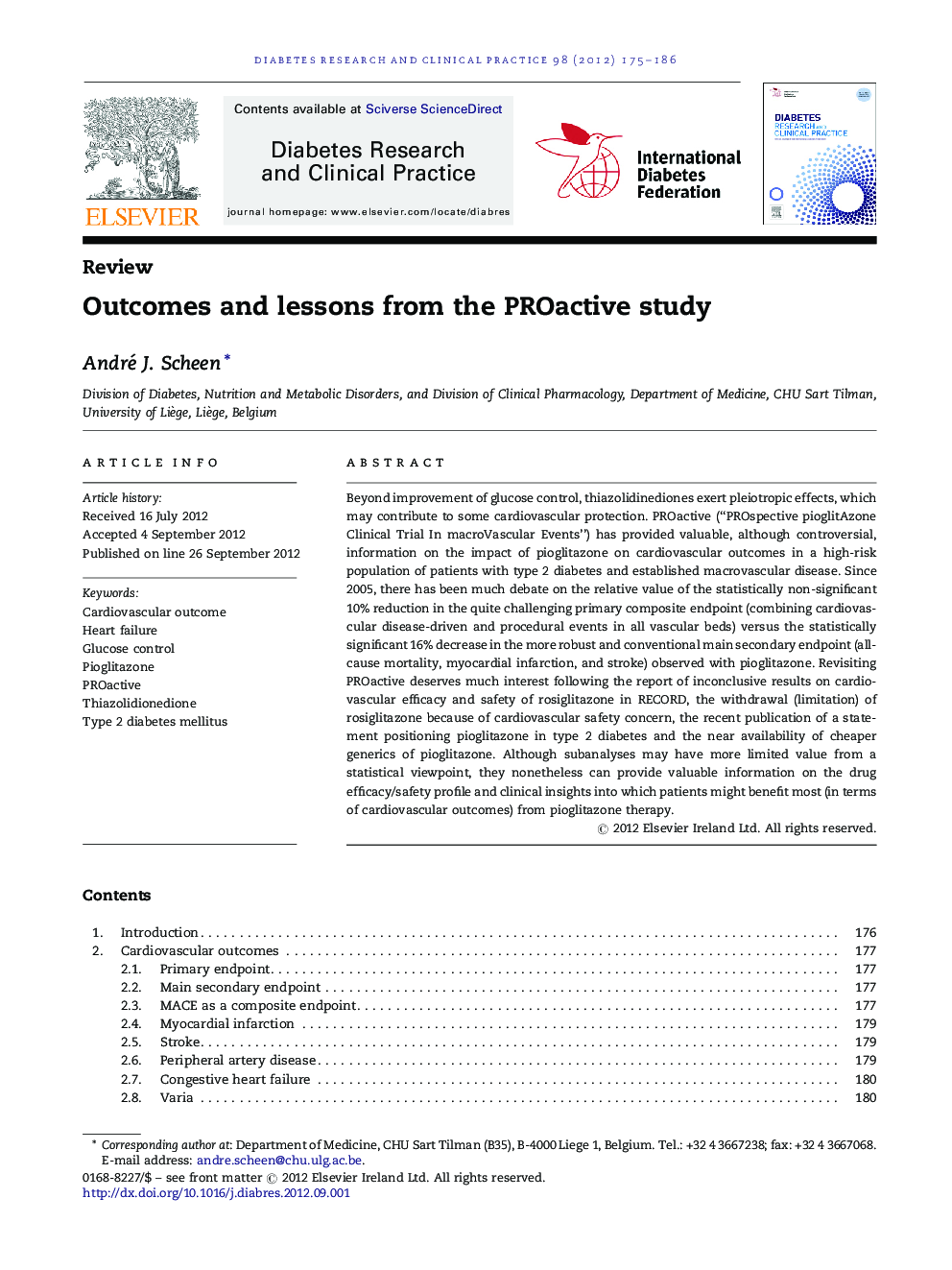| Article ID | Journal | Published Year | Pages | File Type |
|---|---|---|---|---|
| 2796852 | Diabetes Research and Clinical Practice | 2012 | 12 Pages |
Beyond improvement of glucose control, thiazolidinediones exert pleiotropic effects, which may contribute to some cardiovascular protection. PROactive (“PROspective pioglitAzone Clinical Trial In macroVascular Events”) has provided valuable, although controversial, information on the impact of pioglitazone on cardiovascular outcomes in a high-risk population of patients with type 2 diabetes and established macrovascular disease. Since 2005, there has been much debate on the relative value of the statistically non-significant 10% reduction in the quite challenging primary composite endpoint (combining cardiovascular disease-driven and procedural events in all vascular beds) versus the statistically significant 16% decrease in the more robust and conventional main secondary endpoint (all-cause mortality, myocardial infarction, and stroke) observed with pioglitazone. Revisiting PROactive deserves much interest following the report of inconclusive results on cardiovascular efficacy and safety of rosiglitazone in RECORD, the withdrawal (limitation) of rosiglitazone because of cardiovascular safety concern, the recent publication of a statement positioning pioglitazone in type 2 diabetes and the near availability of cheaper generics of pioglitazone. Although subanalyses may have more limited value from a statistical viewpoint, they nonetheless can provide valuable information on the drug efficacy/safety profile and clinical insights into which patients might benefit most (in terms of cardiovascular outcomes) from pioglitazone therapy.
